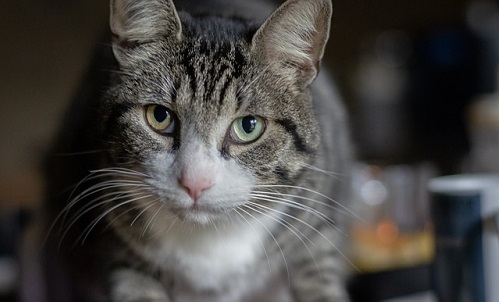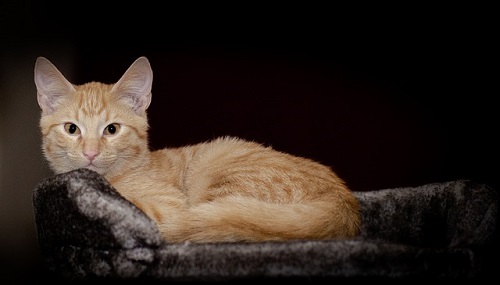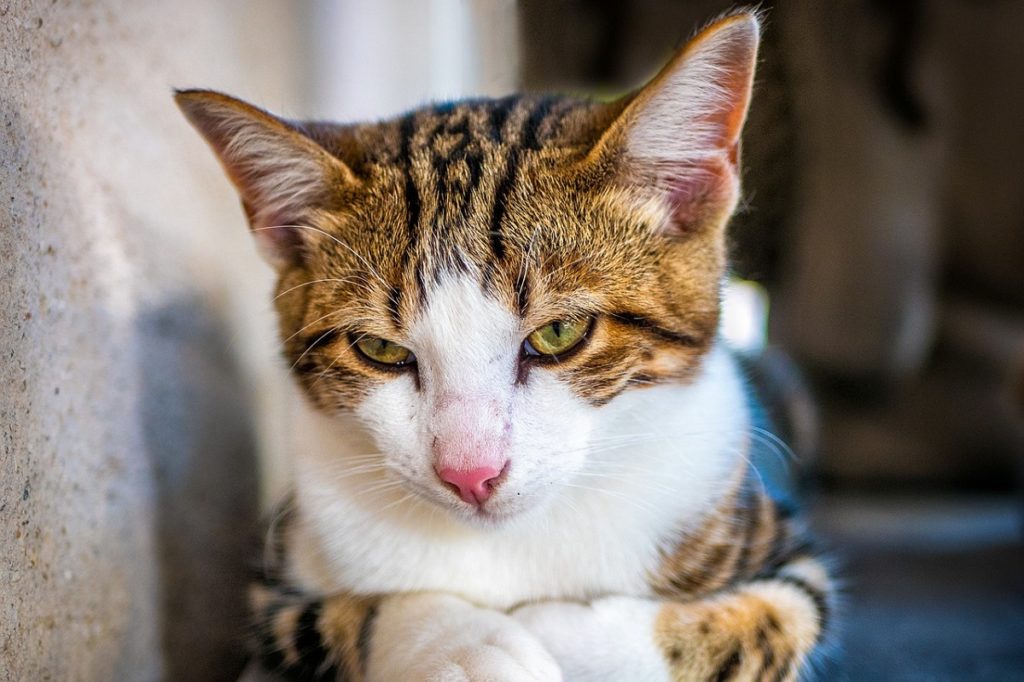You want to make sure your cat eats the healthiest foods possible. However, certain things may be dangerous for your cat – that you wouldn’t expect. Because, when you think of a toxic substance, you might think household cleaners, but not regular human food.
This guide was created to walk you through the foods that are toxic to cats – helping to ensure your pet stays safe and healthy.
One food group may really surprise you.
A note before diving in: If you are reading this and already think your cat has been poisoned, call your trusted veterinarian or the ASPCA National Animal Poison Control Center immediately. The ASPCA number is 1-888-426-4435.
Dairy
The traditional cliche is a sweet furry feline hunched down on all fours, lapping up milk from a tiny bowl. Although that is something seen in cartoons, movies and beyond…it makes this realization all the more startling. Cats’ digestive systems are actually NOT set up for handling dairy. The lactose in dairy products such as milk can stir up tummy problems. Avoid dairy products like milk and cheese.
Alas, and they look so cute licking up milk from saucers, do they not?
Alcohol
Keep the whiskey away from the whiskers. Our sweet feline friends should not consume any type of alcohol. Just a lick (or few) can be highly dangerous. It can set off horrific symptoms, such as upsetting their stomach and disorienting them. (So, not so different from the effects on human sometimes!) It’s especially toxic though because, since they are so small, even a tiny bit of alcohol can even be fatal.
Grapes
The ASPCA advises against allowing your cat to have grapes or raisins. Although toxic traces are mostly linked to dogs, experts like ASPCA feel the evidence is strong enough that no cats should eat grapes, as well.
Avocado
 To humans, avocado is a superfood. Its healthy fats are good for you on so many levels. But – for cats – it’s a whole other story. Just like how dogs cannot eat avocados, neither can cats. Avocado contains a chemical called Persin, which is dangerous for felines. It can induce stomach issues and result in cat vomiting and diarrhea in felines.
To humans, avocado is a superfood. Its healthy fats are good for you on so many levels. But – for cats – it’s a whole other story. Just like how dogs cannot eat avocados, neither can cats. Avocado contains a chemical called Persin, which is dangerous for felines. It can induce stomach issues and result in cat vomiting and diarrhea in felines.
Onions & Garlic
These add a delightful flavor to our foods (like helping create guacamole from the avocado shared above), however, they are dangerous for your cat. Thiosulphate, a component in onions and garlic, can induce anemia in your feline. It can also be in shallots, chives and onion powder. This is another reason to keep foods like guacamole far from cats – the majority of ingredients are extremely dangerous and can have some serious side effects if consumed.
Too Much Salt
A little salt may be okay, however, having too high a quantity can result in salt poisoning, which leads to neurological problems.
Cherries
This delightful summer fruit contains…cyanide. This can be a form of poison to humans if a high enough quantity is consumed. However, it doesn’t take nearly as much for dogs or cats. That is why cherries are toxic to dogs and cats. The cyanide can result in dilated pupils, issues with breathing and, in the most severe situations, shock or death.
Chocolate
Just like how dogs can’t eat chocolate, neither can cats. Chocolate contains theobromine, which is a stimulant that can cause heart issues, muscle tremors or even feline seizures. Another factor is that chocolate has caffeine.
Caffeine
Cats should not ingest caffeine, whether in the form of food (such as chocolate) or in drinks (such as coffee or tea). This stimulant is not good for their system.
Dough
If you ever bake, you know that making dough takes plenty of time. For example, perhaps you make a pizza dough and then give it time to rise. You leave the room to take care of some house chores while the dough rises. Maybe your cat hops on the counter and trots over to the dough. Intrigued, maybe he’ll take a bite.
This is not good.
The dough can expand, just as it would in the counter, within his stomach. Results can be as extreme as his stomach rupturing or a deadly condition called bloat in cats to occur. If you suspect this may have happened, please call your vet professional ASAP.
How to Prevent Your Cat from Eating Toxic Foods
 The most ideal thing is, naturally, to keep your cat away from toxic plants, products, and foods like those listed above. Try to keep toxic foods out of your cat’s reach.
The most ideal thing is, naturally, to keep your cat away from toxic plants, products, and foods like those listed above. Try to keep toxic foods out of your cat’s reach.
Avoid serving human foods too, even as a treat. It’s easier to keep your cat safe when you stick to food and formulas made for cats.
Now, it is also important to see how your cat reacts to foods in general. Just like humans can have allergies, so can cats. So, there are foods that may not be toxic to most cats but aren’t so good for yours. Here are the most common foods that cause allergies in cats.
What to Do if Your Cat is Poisoned
And remember, if you are reading this and already think your cat has been poisoned, act fast. Try to identify any symptoms of cat poisoning and report to your vet right away. Call your trusted veterinarian or the ASPCA National Animal Poison Control Center immediately. The ASPCA number is 1-888-426-4435.
Sources:
- Nicholas, Jason. “14 Human Foods You Shouldn’t Give to Your Cat.” Preventative Vet, Accessed 2 Nov. 2018. www.preventivevet.com/cats/human-foods-you-should-not-give-to-your-cat.
- “The Human Food Cats Should Never, Ever Eat.” The Spruce Pets, Accessed 2 Nov. 2018. www.thesprucepets.com/human-food-and-cats-551947.
- “20 Toxic Foods Poisonous to Dogs and Cats.” Nationwide , 7 Nov. 2017, Accessed 2 Nov. 2018. www.blog.nationwide.com/toxic-foods-for-dogs-and-cats/.
- Patton, Gemma. “Eight Everyday Foods Curious Cats Should Never Eat.” Vets Now, 19 Sept. 2018, Accessed 2 Nov. 2018. www.vets-now.com/2017/02/foods-poisonous-to-cats/.
- “10 Most Toxic Foods For Cats.” HomeoAnimal.com, Accessed 2 Nov. 2018. www.homeoanimal.com/blogs/blog-pet-health/81074756-10-most-toxic-foods-for-cats.




